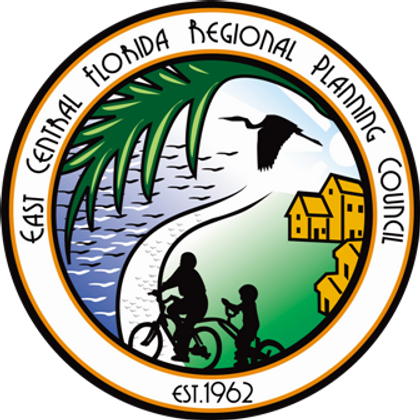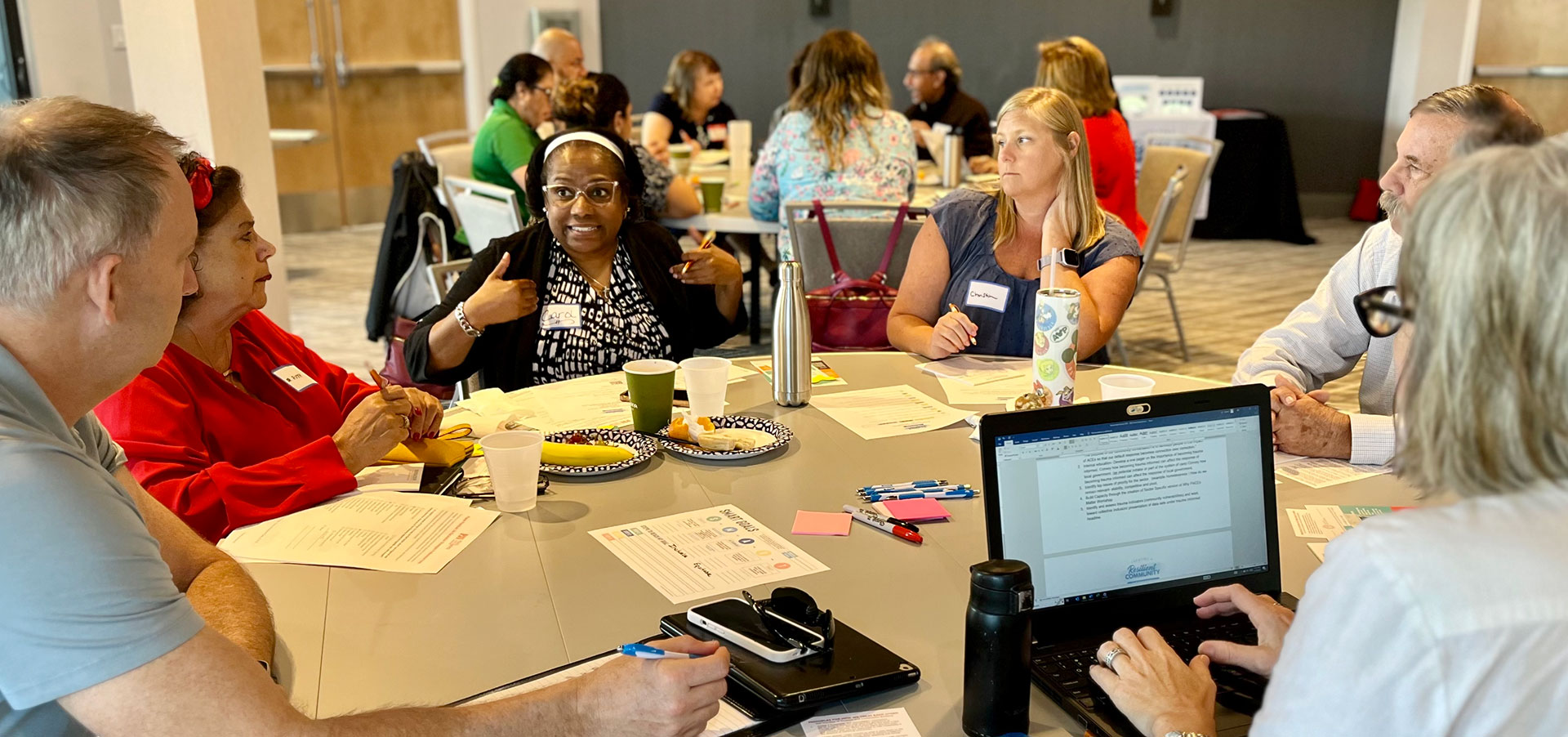Our Mission
We are a network in Central Florida collaborating across sectors and communities to transform our region into one of prevention, hope, healing, and resilience for all.
The Resilience Network meets every other month as a group to learn, grow, and collaborate across sectors. To attend the next meeting, complete the form to join the network and you will receive an email with all meeting details.
Upcoming Meetings:
Why Positive and Adverse Childhood Experiences (PACEs) Matter
In this workshop, participants will learn about the Resilience Network and the science of Adverse Childhood Experiences (ACEs), trauma, and toxic stress on health, behavior, learning, the economy, and our community. Additionally, we will touch on Adverse Community Experiences that, when paired with Adverse Childhood Experiences, have been referred to as the “Pair of ACEs”. The workshop defines what it means to be trauma-informed and explains strategies to heal trauma and build resilience.
Why Being Trauma Informed Matters
This workshop builds off of the Why PACEs Matter workshop by providing individuals with next steps in implementing a trauma- informed approach. In the workshop, participants will examine the three E’s conceptualization of trauma; explore the 4 assumptions of a trauma-informed approach; learn the 6 key principles of trauma-informed care; define the stages of development in becoming trauma-informed; and lastly, examine various implementation domains for a trauma-informed approach including the personal/individual, organizational, and sectoral.
Additional Offerings Include:
Reflective Practice and Emotional Intelligence
Working with Conflict
Parenting Workshop
Trauma and Healing: Supporting our Youth
Leadership and Resilience: Tapping Into Our Source
For the full list of PJI offerings, visit this page.
Resilience: The Biology of Stress and the Science of Hope
This workshop provides the perfect entryway into the important topics of Adverse Childhood Experiences (ACEs), trauma, toxic stress and resilience. In this workshop, we screen the 1-hour award-winning film Resilience and build in time throughout for reflection, facilitated dialogue, and invitations to learn more. While the film provides the foundation for understanding the biology of toxic stress and ACEs (Adverse Childhood Experiences), participants are given tools for dialogue in a safe setting to discuss the film content as it relates to their life experience and the community. Participants will use the Principles for How We Treat Each Other to listen deeply, suspend judgment of others, and engage in self-reflection and self-disclosure. With these new tools in hand, participants will develop practices of respect and community building. The goal of the workshop is to build a resilient community, moving from trauma to healing.
Broken Places
Why are some children permanently damaged by early adversity while others are able to thrive? To help answer this question, filmmaker Roger Weisberg dug into his extensive film archives to update a few of the stories of the abused and neglected children he filmed decades ago. Viewers are given a unique time-lapse perspective on how the trauma that these children experienced shaped their lives as adults. Broken Places interweaves these longitudinal narratives with commentary from a few nationally renowned experts in neurobiology and early childhood development in order to illuminate the devastating impact of childhood adversity as well as the factors that can foster resilience. In this workshop, we screen the 1 hour and 15 minute film and incorporate time for group discussion and reflection.
Paper Tigers
In this film, Director James Redford's looks at the effects of childhood trauma on the youth of Walla Walla, Washington, and how one community transformed its culture to respond. The film follows six students as teachers, administrators, health professionals, and counselors come alongside to support them through stressful life events. At Lincoln Alternative High School, Principal Jim Sporleder leads staff through the process of reforming discipline practices after learning about the Adverse Childhood Experiences Study. As the staff builds stronger relationships with struggling students, the school becomes an example of how a single, caring adult can break the cycle of adversity in a young person’s life. The film offers a compelling example of how caring connections can improve the well-being of youth, adults, and the overall community.
This book club was set up by PJI to encourage a common read of books related to the theme of Creating a Resilient Community. To date, we have read the following:
The Creating a Resilient Community Conference is an annual initiative that hosts cutting-edge keynote speakers and convenes participants to explore community wellness, positive and adverse childhood experiences (PACEs), and trauma-informed practices that can transform our region into one of prevention, hope, healing and resilience for all.
Save the Date: April 9-10, 2026
ACEs cost governments hundreds of billions of dollars per year due to:
As a nonprofit, you are likely working on the front lines serving populations that are trauma-impacted. Trauma informed policies within your organization can help you better cater to the populations you serve, and avoid different types of exposure like revictimization, burnout and secondary traumatic stress.
Trauma informed practices in the educational setting have shown to effectively reduce:
Trauma informed policies can help employers to address:
In Central Florida, a collective impact movement led by the Peace and Justice Institute is underway to create a more resilient, trauma informed, community.
In 2019, local leaders asked us to convene a conference that would educate the community about the human and societal impacts of adverse childhood experiences (ACEs), trauma, and toxic stress. Since then, there has been enormous interest in keeping the momentum going around this work in Central Florida. Bimonthly meetings have been held since 2019 and we have grown into a network of 600+ individuals from 300+ organizations in all sectors of Central Florida.
The group, now called the Resilience Network, has defined ourselves as “a network collaborating across sectors and communities to transform our region into one of prevention, hope, healing, and resilience for all.”
Business
Child Welfare
Criminal Justice
Education
Faith
Government
Health/Wellness
Non-profit
Public Safety

Peace and Justice Institute
Community Resilience Manager
Create Shared Understanding about the Science of Positive and Adverse Childhood Experiences and Interventions for Healing
Expand the Resilience Network’s Sector Representation, Accountability and Community Leadership
Learn, Collaborate and Deepen Connections as a Community Network
Leverage Our Impact Through Research, Data, Policy and Advocacy

2023 East Central Florida Regional Planning Council Diamond Award Winner—Health and Equity

2019 Recognition from the Governor’s Office for “efforts to create a resilient Central Florida”
